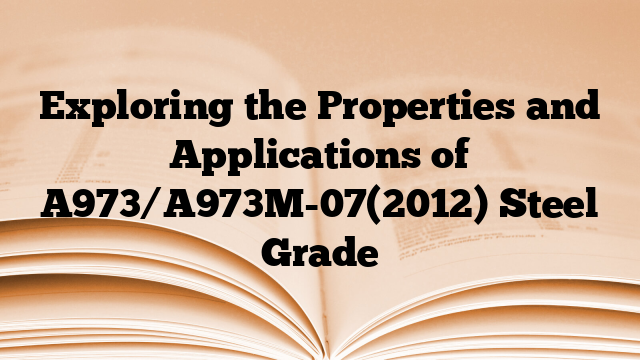The A973/A973M-07(2012) steel grade is a standard specification for carbon steel and low-alloy steel plates intended for use in the construction of bridges. This steel grade is commonly used in structural applications due to its excellent mechanical properties and high strength.
The chemical composition of A973/A973M-07(2012) steel grade typically consists of elements such as carbon, manganese, phosphorus, sulfur, silicon, copper, nickel, chromium, and molybdenum. The specific composition requirements vary depending on the thickness and product type, but generally, the carbon content is limited to a maximum of 0.20% for structural shapes and plates.
The mechanical properties of A973/A973M-07(2012) steel grade are evaluated through various tests, including tensile strength, yield strength, elongation, and impact resistance. The minimum tensile strength of this steel grade is 70,000 psi (485 MPa), while the minimum yield strength is 50,000 psi (345 MPa). The elongation is typically greater than 18% in 8 inches (200 mm), and the impact resistance is tested using Charpy V-notch impact tests.
The applications of A973/A973M-07(2012) steel grade are primarily in the construction of bridges, where high strength and excellent mechanical properties are required to withstand heavy loads and harsh environmental conditions. This steel grade is used for various bridge components, including girders, beams, and plates. It is also suitable for other structural applications that require a combination of strength, toughness, and weldability.
The A973/A973M-07(2012) steel grade is widely accepted and used in the industry due to its well-defined specifications and reliable properties. It meets the standard requirements for carbon and low-alloy steel plates, ensuring consistency and quality in its application. By considering the chemical composition and mechanical properties, engineers and designers can confidently select and utilize A973/A973M-07(2012) steel grade for their structural projects.

